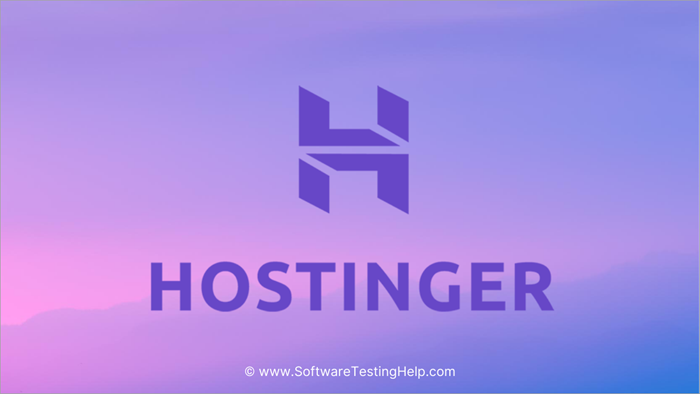
Eco-Friendly Shared Hosting: Embracing Green Data Centers for a Sustainable Web
- Post
- August 7, 2023
- Internet & Web Services, Shared Hosting, Web Hosting
- 0 Comments
In today’s digital age, where the internet plays a central role in our lives, the environmental impact of data centers cannot be ignored. Shared hosting, a popular web hosting solution, has traditionally been associated with resource-intensive data centers, contributing to carbon emissions and energy consumption. However, a new wave of eco-friendly shared hosting is emerging, paving the way for a more sustainable web.
Understanding Shared Hosting and Its Footprint
Shared Hosting: A Primer
Shared hosting is a web hosting model where multiple websites share resources on a single server. It’s an economical option for businesses and individuals looking to establish an online presence without the cost of dedicated hosting.
The Ecological Footprint of Traditional Data Centers
Conventional data centers that power shared hosting services are notorious for their high energy consumption and carbon emissions. These data centers operate around the clock, consuming vast amounts of electricity for cooling and server maintenance.
The Rise of Green Data Centers
Green Data Centers: An Overview
Green data centers are a revolutionary approach to hosting that prioritizes sustainability. These centers integrate energy-efficient technologies, renewable energy sources, and innovative cooling methods to drastically reduce their environmental impact.
Benefits of Green Data Centers
Reduced Carbon Emissions: By harnessing renewable energy sources like solar and wind power, green data centers significantly lower carbon emissions associated with hosting services.
Energy Efficiency: Cutting-edge technologies, such as advanced cooling systems and server virtualization, improve energy efficiency and reduce overall consumption.
Resource Optimization: Green data centers optimize resource utilization, ensuring minimal wastage and maximum efficiency.
Shared Hosting Goes Green: A Win-Win Scenario
Eco-Friendly Shared Hosting Explained
Eco-friendly shared hosting brings the principles of green data centers to the realm of web hosting. By choosing an eco-friendly hosting provider, website owners can significantly minimize their carbon footprint and support sustainable practices.
Advantages of Eco-Friendly Shared Hosting
Cost Savings: Contrary to the misconception that green solutions are expensive, eco-friendly shared hosting can be cost-effective due to energy savings and optimization.
Positive Brand Image: Embracing green hosting showcases a commitment to environmental responsibility, enhancing a brand’s reputation.
Performance and Reliability: Eco-friendly hosting providers often utilize state-of-the-art infrastructure, leading to improved website performance and uptime.
Navigating the Transition to Eco-Friendly Shared Hosting
Key Considerations for Choosing Eco-Friendly Hosting
Energy Sources: Research the hosting provider’s energy sources, aiming for those that rely on renewable energy.
Efficiency Practices: Inquire about the data center’s efficiency measures, such as cooling techniques and hardware optimization.
Green Certifications: Look for certifications like LEED (Leadership in Energy and Environmental Design) that validate a data center’s eco-friendly practices.
Steps to Migrate to Eco-Friendly Hosting
Assessment: Evaluate your current hosting needs and identify an eco-friendly hosting plan that aligns with your requirements.
Backup and Migration: Back up your website’s data and files before migrating to the new hosting environment.
Testing and Optimization: Thoroughly test your website on the new hosting platform, optimizing for performance and speed.
Final Words
In the dynamic landscape of web hosting, the adoption of eco-friendly shared hosting signifies a crucial step toward a sustainable digital future. By making conscious choices and embracing green data centers, we can collectively contribute to a more environmentally friendly web ecosystem. Let us embark on this journey toward a greener, cleaner online world.
Commonly Asked Questions
Q1: Is eco-friendly shared hosting more expensive?
Eco-friendly hosting can be competitively priced, and the long-term cost savings from energy efficiency often outweigh any initial investment.
Q2: Can I switch to eco-friendly hosting without downtime?
With careful planning and proper migration procedures, switching to eco-friendly hosting can be accomplished with minimal to no downtime.
Q3: Are there specific website platforms compatible with eco-friendly shared hosting?
Eco-friendly hosting supports a wide range of website platforms, including WordPress, Joomla, and more.
Q4: How do green data centers contribute to energy savings?
Green data centers employ energy-efficient technologies like virtualization, efficient cooling, and renewable energy sources to minimize energy consumption.
Q5: What impact does eco-friendly hosting have on SEO rankings?
Search engines increasingly value sustainability and may favor websites hosted on eco-friendly platforms, positively impacting SEO rankings.




